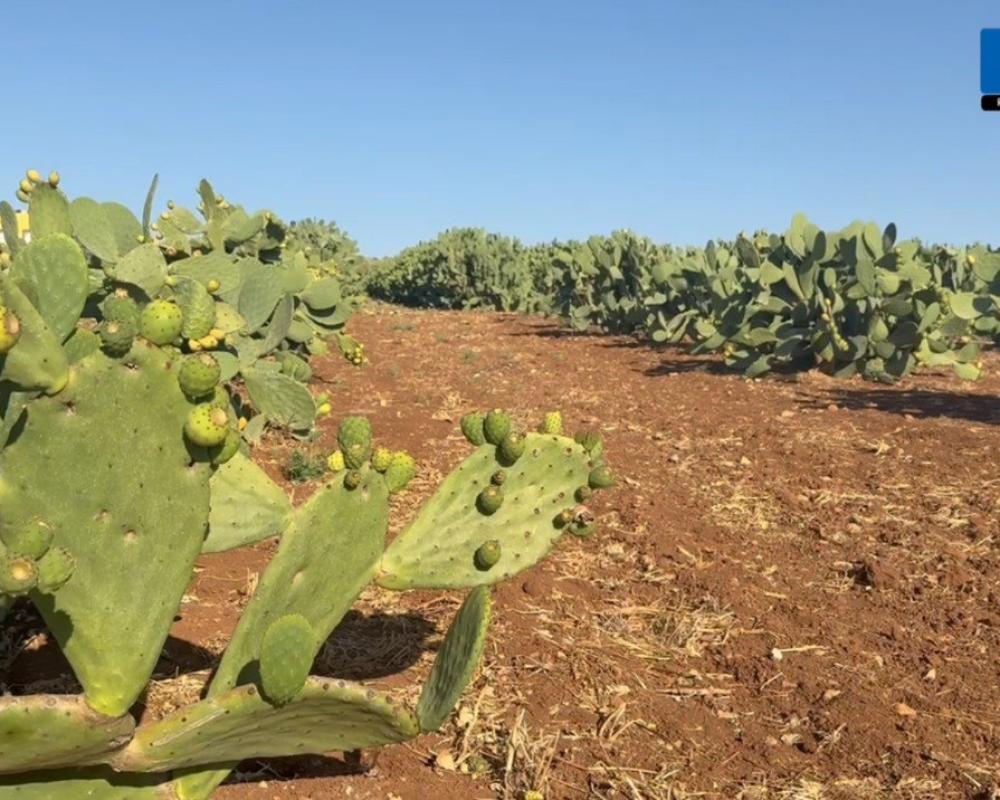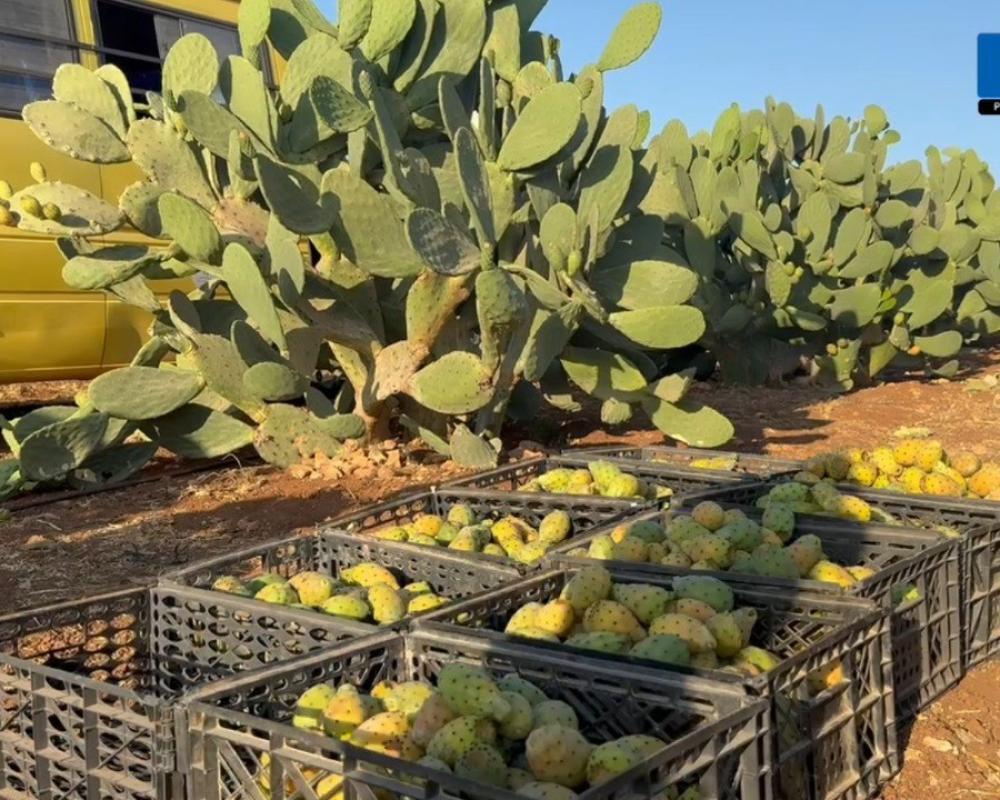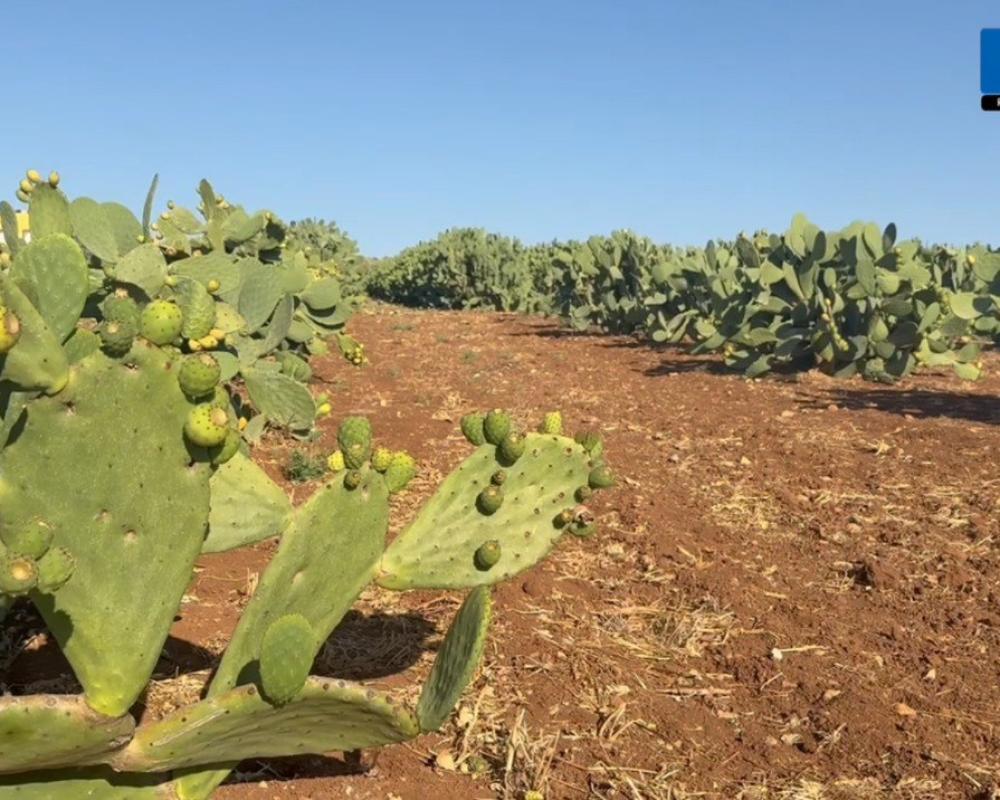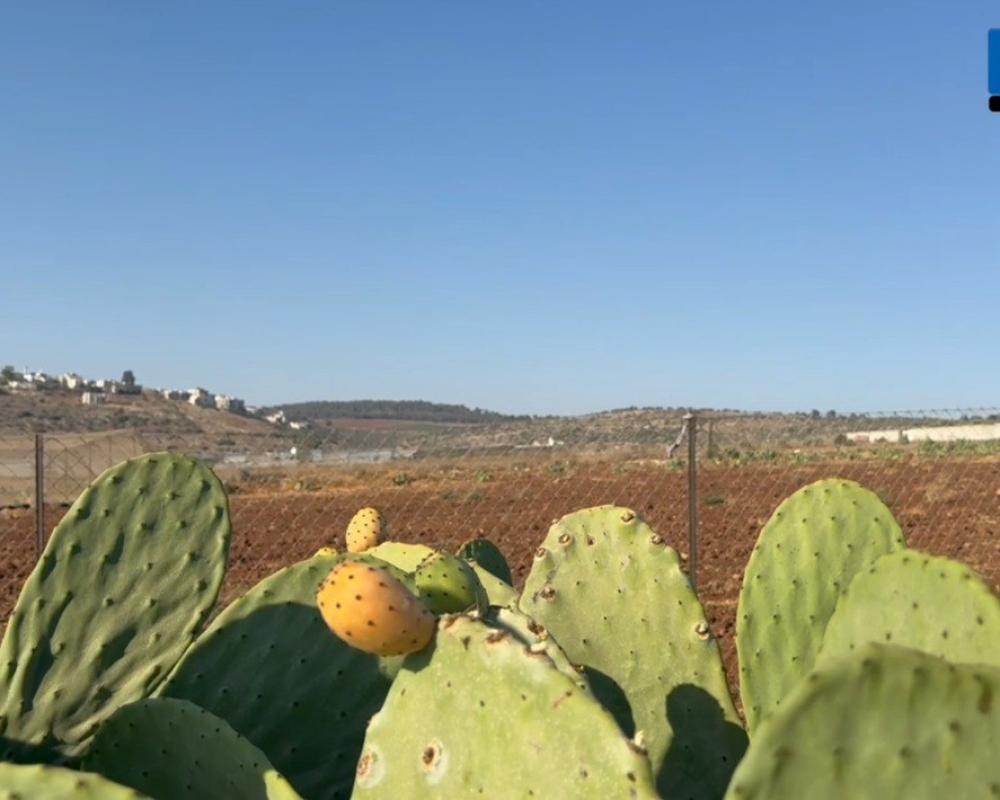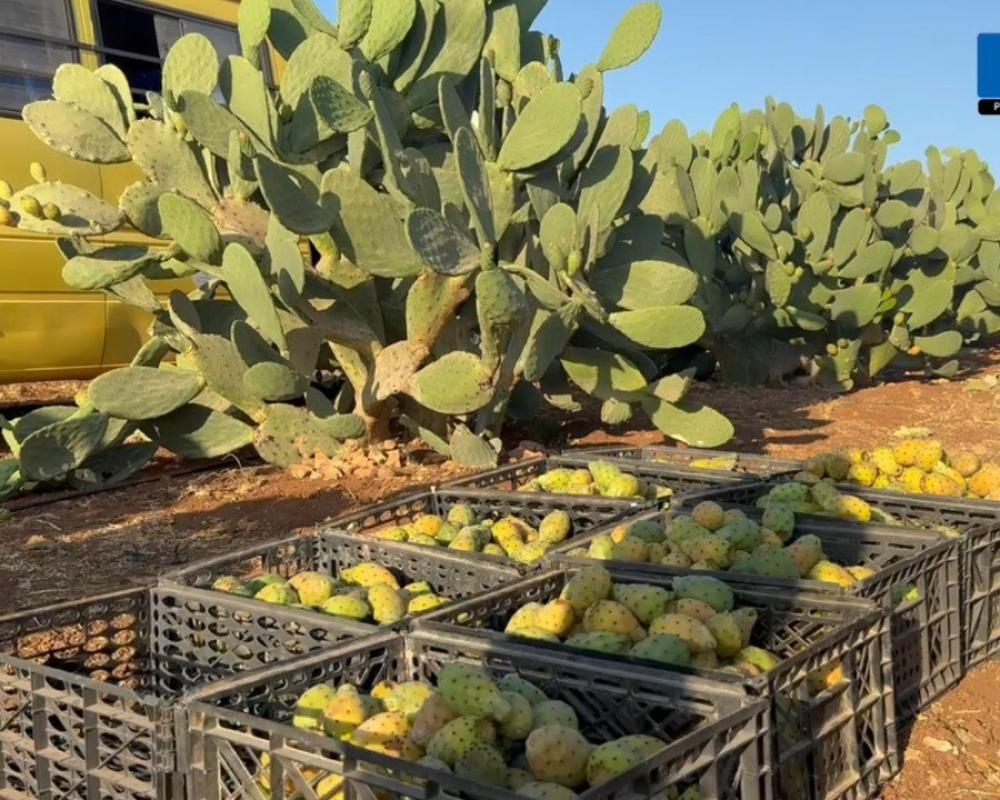
Jenin / PNN – Report by Yara Mansour
In the village of Faqqua, east of Jenin, where the earth meets the sky and the mountains embrace the spirits of the steadfast, farmer Moayyad Abbas tells the story of his deep connection to the land he inherited from his father, after years of displacement, hardship and return. His land has become a part of his very being, a refuge for his dream — a dream he planted with sabr (patience), both literally and figuratively.
“Patience means everything to me, because our whole life needs patience, and even time itself requires patience,” Abbas says. These words were not merely a proverb to him, but a way of life on land plagued by water scarcity and unprofitable rainfed farming. This reality pushed him to cultivate the cactus pear, a plant that withstands the harshness of the climate, its fluctuations, and the lack of irrigation water — just like the resilience of those who cling to their rights and their land across generations.
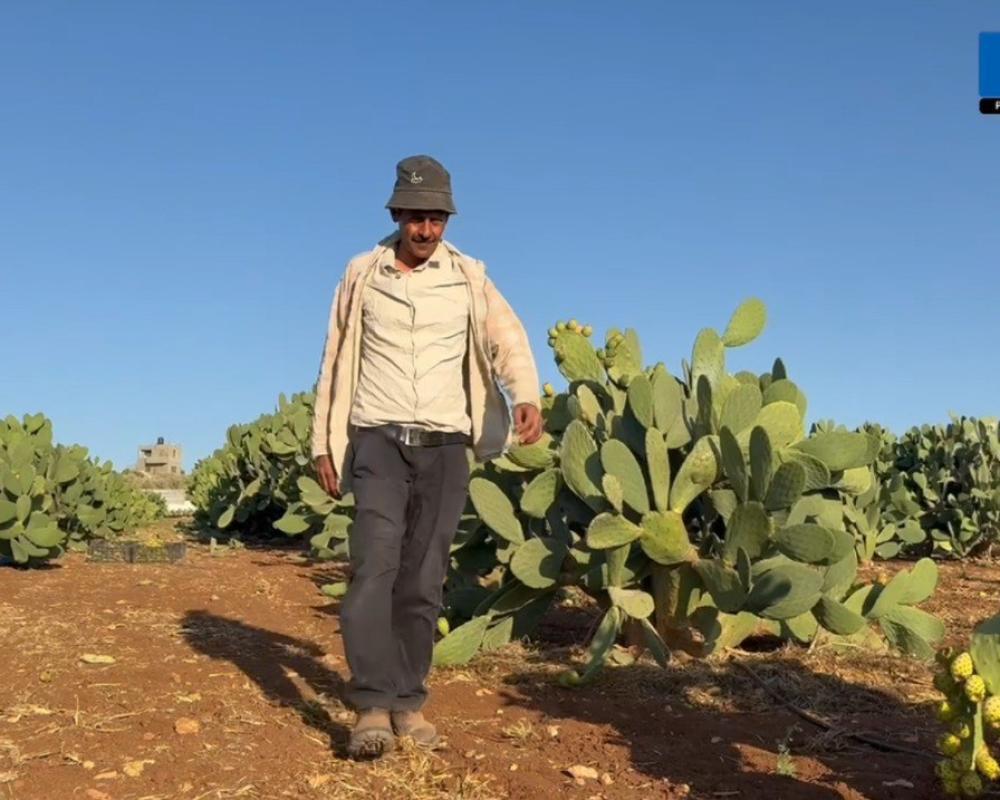
The idea of cultivating cactus pears came after years of struggle and failed farming experiences. Abbas began by planting hybrid cactus pears, launching a small project with a crop that could endure as he does. He later expanded, introducing a new variety with the flavour of cactus fruit but a strawberry-red colour. “I’ve also planted another new type that hasn’t yet produced,” he says. “God willing, we will see its harvest in the future.”
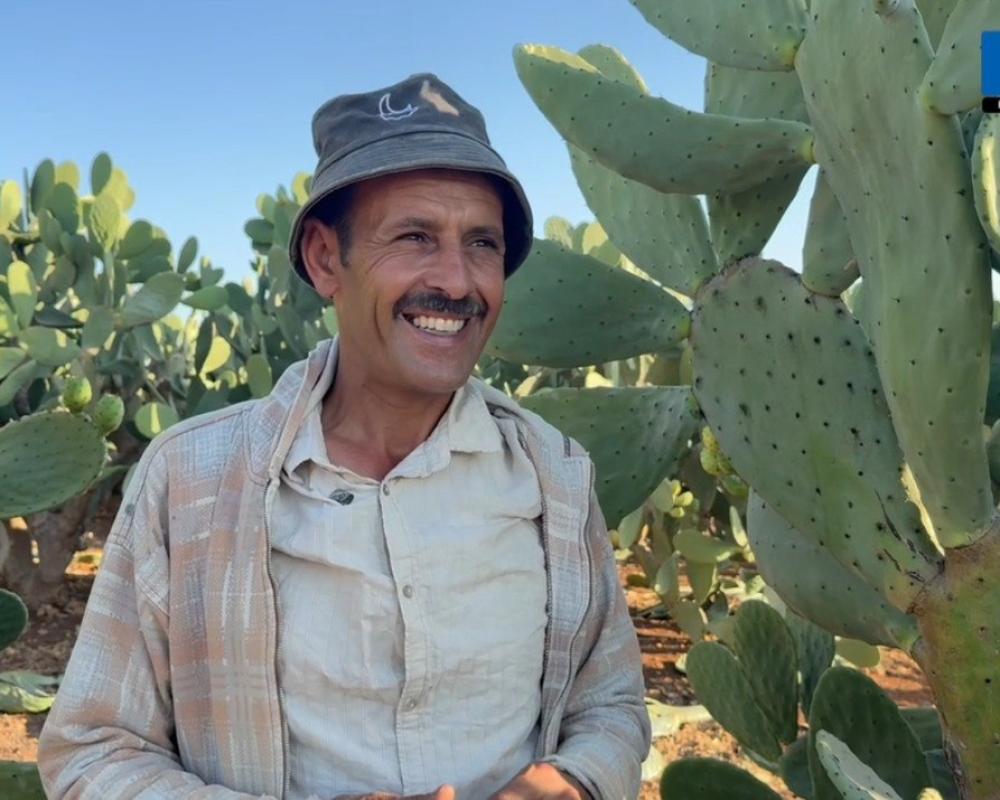
Abbas also points to the obstacles facing his farm and his project. Just as the land does not escape drought, his farm has not been spared from hardship. He was caught off guard by the spread of the cochineal insect, which attacks and weakens cactus plants, forcing him into a new phase of research and experimentation to save his crop.
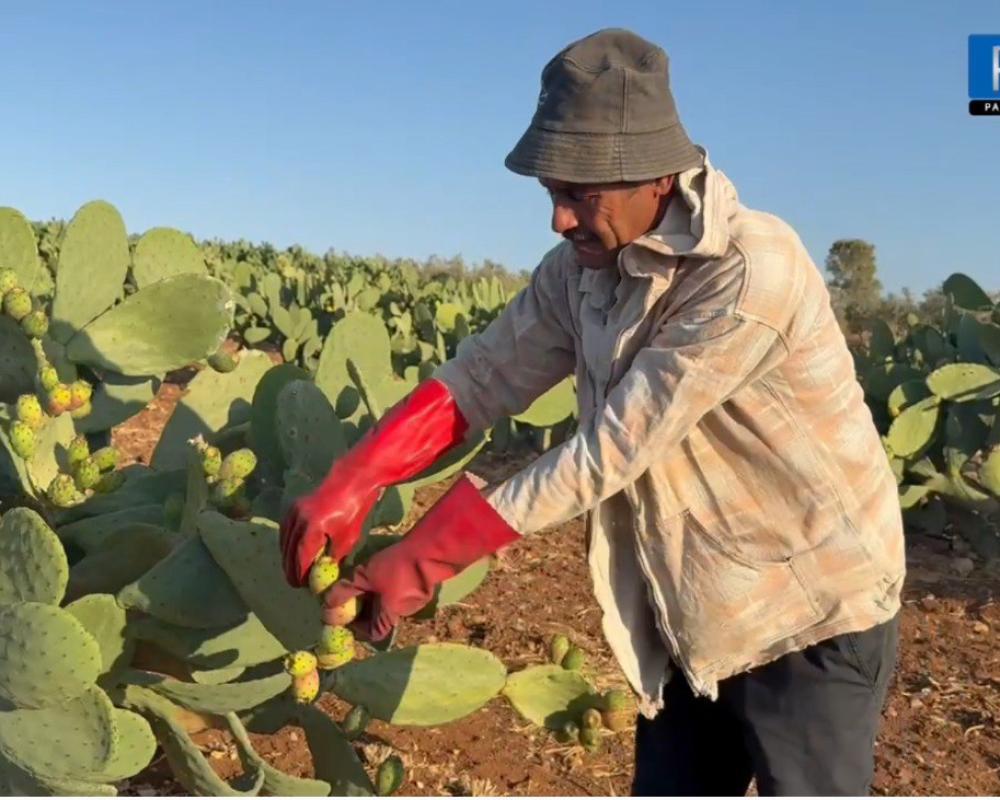
On the marketing front, the war of extermination in Gaza has overlapped with an economic war endured by Palestinian farmers and citizens, driven by punitive measures and closures across Palestinian areas. This has fuelled a crisis and dire living conditions, compounding the suffering of cactus farmers. “In previous years, the cactus pear market was excellent, especially with sales inside the 1948 territories,” Abbas says. “But today, the situation is different.” Demand has dropped, prices have collapsed, and production has declined due to reduced rainfall and climate change. On top of this, worsening economic conditions have turned this once-simple fruit into a luxury many Palestinians can no longer afford.
He speaks with deep regret about the past, when a company used to collect cactus pears and export them to Jordan, Syria and Kuwait. Today, that company is gone, leaving only individual efforts and small farms fighting to survive.
Yet despite it all, Abbas holds on to hope, just as the cactus clings to its roots in Faqqua’s soil. He concludes: “The cactus fruit is fading away, because of disease and urban expansion. But we continue… The cactus is a plant that endures, just like the Palestinian people. Patience is our identity.”
This story was produced as part of the Qareeb program, implemented by the French media development agency CFI and funded by the French Development Agency (AFD).
